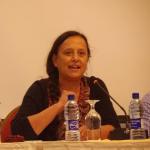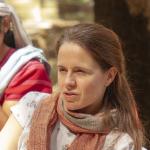Why attend
In this session we will present a range of different perspectives on the potential for what we broadly define as a 'Whole Earth' approach to global conservation, which provides an alternative to top-down protectionist approaches and pursues truly transformational change in conservation policy and practice throughout the world.
Session agenda
Speaker

Ms Jessica CAMPESE
11:00 - 12:30
Freelance analyst / writer & CEESP Co-Chair for the Natural Resource Governance Framework ,
United States of America
11:00 - 12:30

Facilitator



